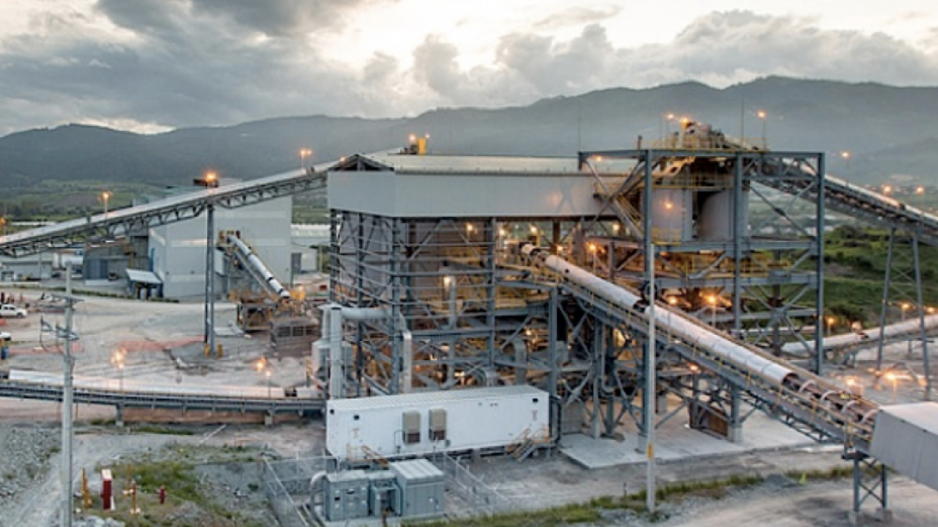The Vancouver-based company behind the US$1.1 billion acquisition of Vancouver-registered Tahoe Resources Inc. (TSX:THO, NYSE:TAHO) said the deal will further cement its position as the world’s largest silver miner by several metrics.
Once the deal is finalized, Pan American Silver Corp. (TSX, Nasdaq:PAAS) said its silver reserves will grow by 100%. It will own the world’s largest share of silver reserves and will become the largest publicly traded silver company by free float – the portion of shares that are publicly traded on the market.
But as Pan American readies to take over Tahoe’s assets in Peru, Guatemala and Canada, the company is also preparing to inherit the legal challenges, and human rights and environmental controversies, that have surrounded some of Tahoe’s operations.
“The most significant asset within that portfolio is the Escobal mine in Guatemala,” said Siren Fisekci, Pan American’s vice-president of investor relations and corporate communications.
Located in southeast Guatemala, the Escobal project began commercial production in 2014 as one of the largest silver mines in the world and produced a record 21.3 million ounces of silver in 2016.
“It’s a very well-built mine,” Fisekci said. “It’s a turnkey operation.”
It is also Tahoe’s most challenged project.
The mining licence of Tahoe subsidiary Minera San Rafael SA has been suspended since July 2017, and in September of this year, Guatemala’s Constitutional Court ruled operations of the Escobal project are to remain suspended until the country’s Ministry of Energy and Mines completes a consultation with the local Xinca indigenous communities – a process required under the International Labour Organization’s Indigenous and Tribal Peoples Convention (ILO 169), which Guatemala has ratified.
“We are confident in the process that we have ahead of us, and we’ll take the time necessary to do that right,” said Fisekci, who confirmed that Pan American will be involved in the Guatemalan government’s consultation process.
“That path has now been laid out, and what we’ll do alongside that, in addition to following this legal path, is to do the community consultation.”
This will include listening to communities, and Fisekci confirmed representatives of Pan American have been on the ground in San Rafael Las Flores since the takeover was announced. She said that approach, and 25 years of operations in Latin America, lead Pan American to believe it will be successful in reopening the mine.
Critics of Tahoe’s legacy in Guatemala, however, already have concerns about how the process for ILO 169 is being undertaken.
Ellen Moore, a representative of the Washington, D.C.-based non-profit Earthworks, said members of the indigenous Xinca parliament have yet to be involved in the indigenous consultation process.
“I’m flabbergasted,” said lawyer Shin Imai, professor emeritus at York University’s Osgoode Hall Law School and a director of the Justice and Corporate Accountability Project. “I can tell you in terms of international best practices, in terms of best practices in Canada, you get indigenous people involved right at the very beginning.”
The full indigenous consultation process is expected in the spring. Imai said he is not optimistic the mine will reopen next year.
Fisekci did not confirm which community representatives the company has spoken with, and said it is too early to tell when the mine might resume operations.
“I think this transaction now is an opportunity for that fresh start, and to develop a new way forward with all of those communities and those parties of interest,” she said.
A portion of Pan American’s takeover payment will be paid when Escobal begins shipping concentrate.
Meanwhile, the project continues to face legal and regulatory challenges in Canada and the United States. A civil suit in Vancouver involving Guatemalan protesters alleges the mine’s private security personnel deliberately shot and injured them during a protest.
In the U.S., a class-action lawsuit has been pursued by investors who claim Tahoe failed to disclose that its mining licence was in violation of local indigenous communities’ right to be consulted.
Last month, Siskinds LLP announced the filing of a proposed class-action lawsuit in Ontario that claims Tahoe did not provide adequate disclosure concerning the initial efforts by the human rights organization CALAS to suspend Escobal’s operations.
Imai said he is considering a complaint to the BC Securities Commission (BCSC) on similar grounds.•




